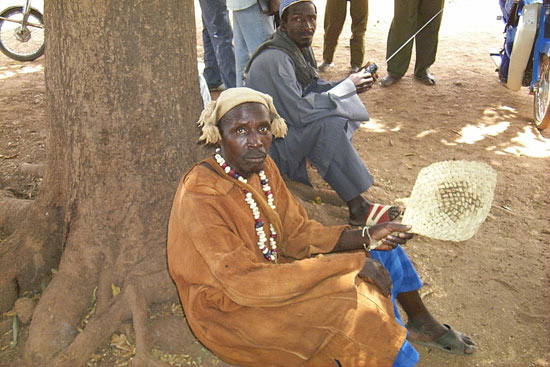
As a face-washing bowl,
And offered me a skin
As a covering cloth.
You have given me a great tongue
So that I may speak to the world.
The brave offered me fresh blood
As face-washing water,
And gave me a tail
As a hut-sweeping broom,
And offered me a thighbone
To use as a toothpick.
It is the hunter who has done this for me A Malian friend whose father was a donso told me a possibly apocryphal story: If one is dancing during a performance of the hunters who is not supposed to be dancing, he or she runs the risk of being killed by medicaments. It seemed like a good idea to let the guy eat the chicken carcass.